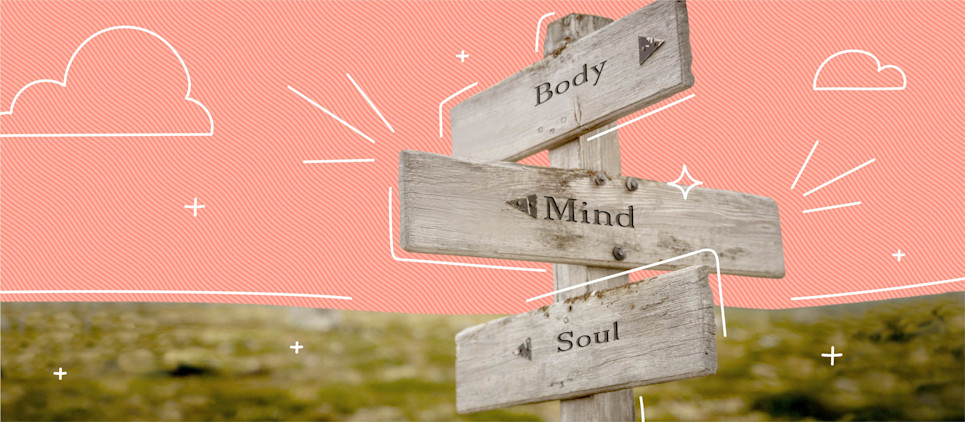Self-development takes a lifetime—and that’s okay
When we’re children, our parents, caregivers, and teachers usually set our paths towards personal growth. But when we move out of the house and into the adult world, it’s up to us to set goals.
Self-development is a lifelong process—but not a linear process. New situations will require new and different skills, and challenges often arise in adult life when you least expect them. But that process of setting personal goals and looking inside yourself is some of life’s most profound and rewarding work. If this process is new to you, that’s okay—start small.

Table of contents
Develop these 6 soft skills5 Self-development strategiesDevelop these 6 soft skills
Soft skills are skills that can’t easily be quantified but are still hugely important to personal success, while a hard skill is more technical and quantifiable. If you get a flat tire, for example, a soft skill you might use would be problem-solving, but the hard skill would be changing the tire.
Here are a few examples of soft skills to develop. These can help you in your friendships, romantic relationships, family life, workplace, and more. Improving these will also help improve your overall quality of life.
Communication: No one can read your mind. Thinking about who needs to know what information and the best way to convey it is an art, and it’s worth it to spend time working on it because there is no relationship in which communication skills won’t be necessary.
Interpersonal skills: If you feel like you might want to develop closer relationships with co-workers or roommates, or make more friends (which can be so hard as an adult), you might want to develop your interpersonal skills—think relating to others, paying attention to nonverbal cues, setting and respecting boundaries, making and keeping social plans, and handling conflict.
Time management: Unfortunately, the day only has 24 hours, and we have to spend some of them sleeping. How will you choose to allocate the remaining time? Effective time management skills and good habits will help ensure your actions match your goals.
Learning mindset: Your education doesn’t stop when you’ve got a diploma or degree in hand. In fact, some might say that’s when your real education begins. How you approach lifelong learning will determine how easily you pick up new habits and what types of activities you’ll engage in. How do you want to approach learning, and how can you find ways to exercise that approach?
Getting outside your comfort zone: Being adventurous is a real skill. If you’re someone who isn’t prone to taking risks but wants to have new experiences, maybe you can set your mind to expanding your horizons a little bit at a time.
Goal-setting: Even the way you want to approach setting and achieving personal goals can be an area for improvement. How will you hold yourself accountable and reach your goals?

5 Self-development strategies
The above list may feel daunting to tackle all at once, so choose an area or two to start with and set tangible goals for yourself to improve your knowledge and skills.
1. Find a mentor, therapist, or coach
One-on-one guidance can be highly effective for certain people. What type of one-on-one guidance depends on what you’re looking to improve.
A mentor or coach can be a great choice for improving your interpersonal skills, time management, and goal-setting, or for helping you advance in your chosen career. A therapist is a trained mental health professional who can guide your journey in a clinical setting.
2. Read books and listen to podcasts
Reading books is the most cost-effective way to gain perspective other than your own. Some people swear reading novels is all one needs to improve oneself; others tend to opt for self-help and nonfiction books. Self-help books, while once considered embarrassing or stuffy, are having a renaissance—experts from a huge variety of fields and backgrounds have published essay collections, memoirs, and research meant to give readers a chance to reflect on their own lives. Popular modern self-help books include The Defining Decade, How to Do the Work, Tiny Beautiful Things, Daring Greatly, and The Subtle Art of Not Giving a F*ck.
There are also many podcasts that dole out advice, tell stories, and offer insight if your learning style is more auditory than visual.
3. Find peer support
Whether it’s through a formal group like a religious organization, an online community, or just among your friends, it can be helpful to reach out to others who are also on a journey of self-development. Having a support group can help you feel less alone, give you ideas, foster empathy, and make you feel fulfilled when you offer support to others.
4. Care for your body
If you’re the type of person who tends to forget they have a body, losing yourself in conversations, books, games, or other cerebral activities, you might want to work on movement, self-care, and nourishment.
5. Keep a journal
One of the best and most time-honored ways of maintaining a running dialogue with oneself is to keep a journal. Some people write for the craft of writing and enjoy it as an art form, while others like to keep a simple log of their thoughts, feelings, activities, and progress toward their development goals. The great thing about a journal is it’s truly a blank slate—you’re the author of your own journey.
No matter what you plan to develop within yourself or how you plan to do it, now is always the right time to begin. Setting and pursuing goals will help you live a more full, satisfying, and meaningful life.
Bungalow housing is made for roommates. We handpick homes that are move-in ready and perfect for shared living, and with roommate vetting and compatibility matching, we help you find people you actually want to live with. Find your Bungalow.
Ready to find your next home?
Move-in ready homes and a built-in community so you can feel at home, together — wherever you are.
Suggested articles



